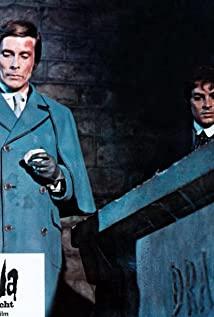The first sentence says that the film is describing a world that is absurd and unjust. In the middle of the film, Elise was released from the sanctuary by the French army. Although she was tortured by 15 years of prison, she still saved her life. On the contrary The noble fathers and brothers outside died tragically under the iron shoes of the war. The story continues, Napoleon led the French army and the British to take turns to occupy Spain, in the name of helping the people get rid of the severe rule, but through Goya's mouth, we once again see that the essence of the war is actually a game of desires of a few people. The original winner of the game turned his face and went to the guillotine again, but Elise, the "little angel" who had been tortured for half her life, was finally able to hold the baby, hold the hand of "Dad", and enjoy the illusory happiness of family reunion. And Goya, the protagonist of the title, can be regarded as an account of the "little angel" and moral law in his heart. In the end, the story does not have a clear ending, and everyone walks into an unknown world in a daze. There will be wars, separations, impermanence in life, and everything is out of our hands.
I venture to guess whether this film can be classified as Schopenhauer - the whole world is ruled by a blind, irrational, absurd "will". In real life, people's egoistic "will to live" cannot be satisfied, so life is full of pain--Elas is still full of love and respect for the monk who raped her; and her own daughter continues her Mother's misfortune, reduced to a man's plaything.
Denies any phenomenon of historical progress, hates the people, democracy and revolution, even bourgeois reforms - so whether the French or the British invaded, the Spanish regime changed hands again and again, the people still cheered the new ruler, And danced cheerfully on the guillotine.
Thank you for a movie that allows me to write so many words, but the quality of the movie itself is really not enough. For example, the title of the film is Goya, but basically his brother's appearance is optional, such as the smoothness of the story. Sex makes me want to go away when I look at it. Otali Portman, I don't even know that this is the first time she has made a breakthrough in appearance, but I still have no feeling for the character she has created, especially the evaluation of the witch when she appeared on the scene "It's hunched, ugly, and stinky. "Well, let's be retributed, in the end, even the witch wants to draw a line with it, what should I say, deserve it? Yes or no?
View more about Goya's Ghosts reviews











